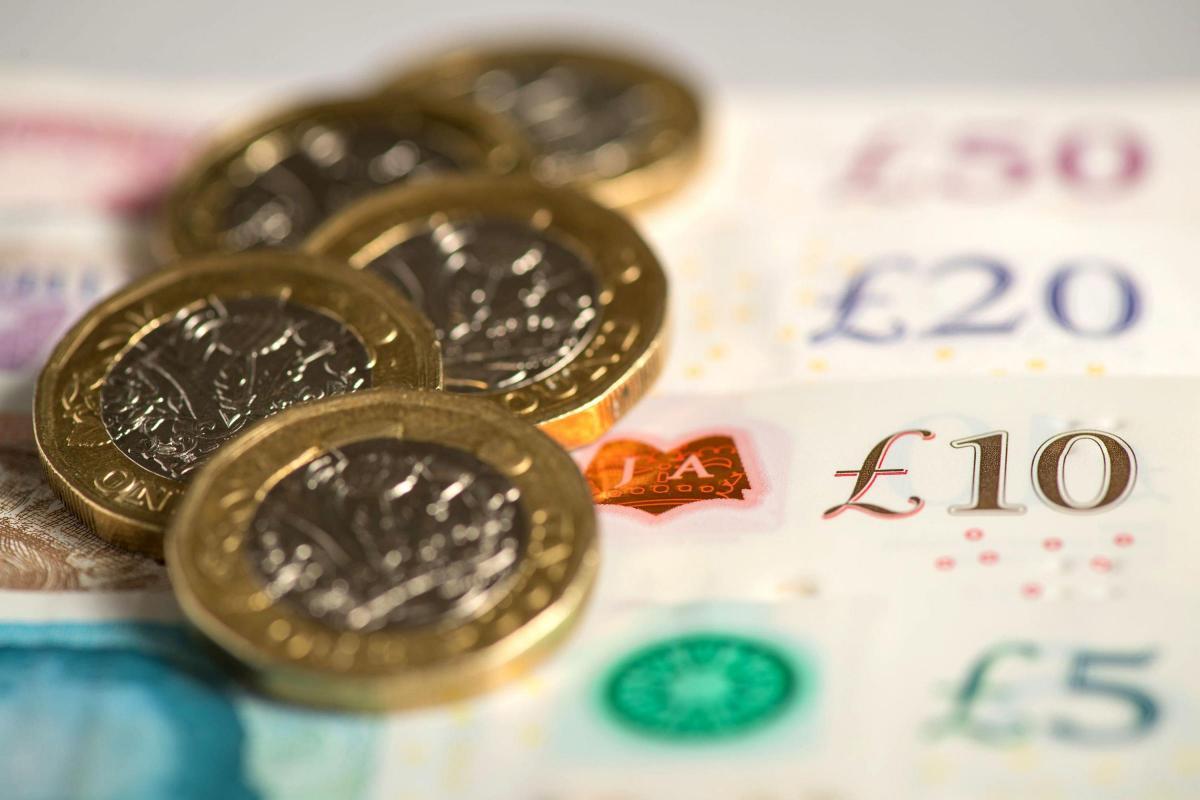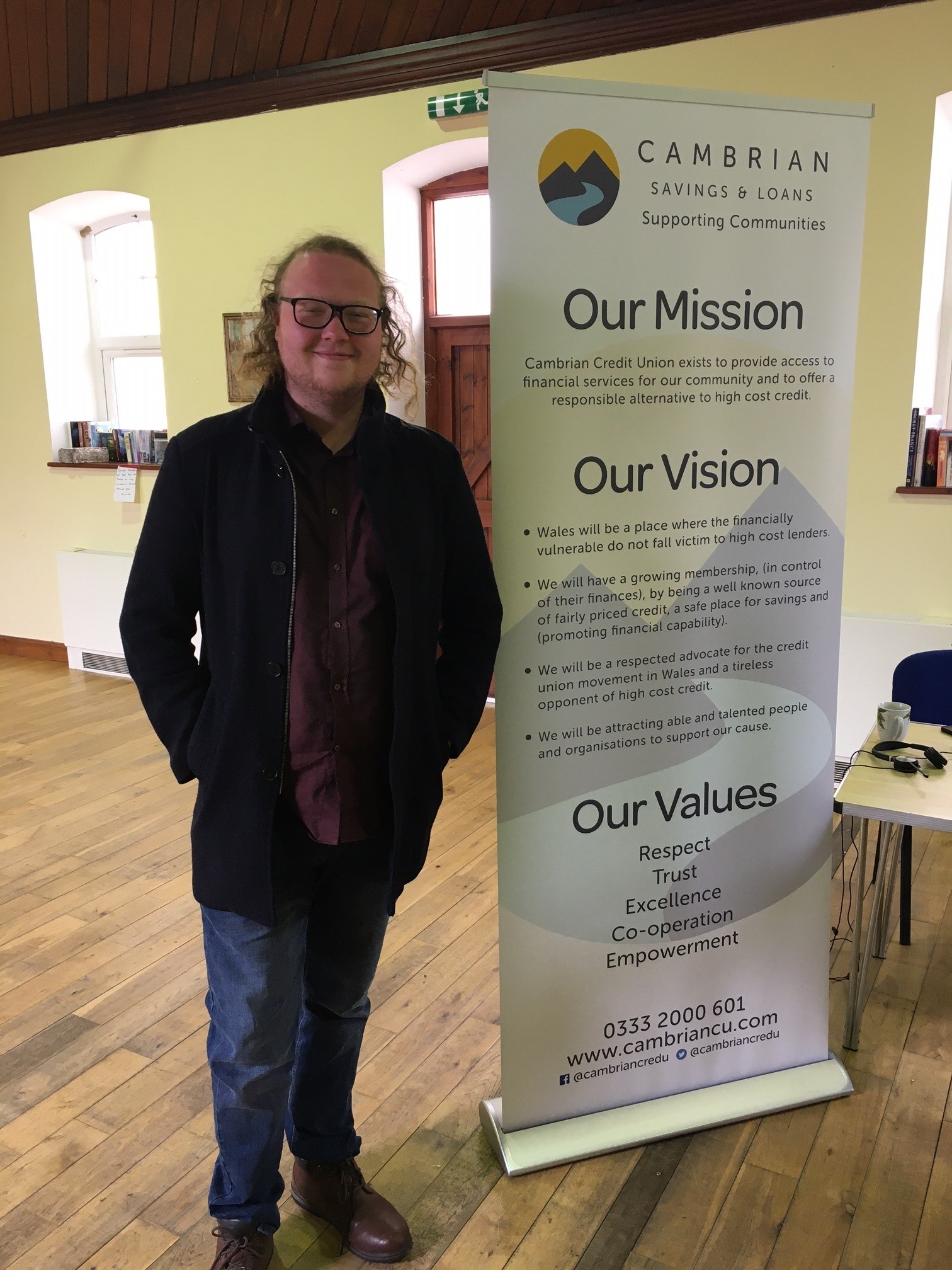12 Gorffennaf 2022
How do I get the £400 energy grant and £650 cost-of-living payment?
Direct payments to help with the soaring cost of living will soon start to be paid into bank accounts - but some people will need to ensure they receive their full entitlement.
The first instalment of payments to those on benefits is being made from 14 July, the government has said.
Other grants will come later in the year, as part of a mix of broad and targeted support. They will not affect the tax you pay, or the benefits, or tax credits, you get.
What are the first cost-of-living payments for people on benefits?
A £650 payment will be made to more than eight million low-income households who receive Universal Credit, income-based Jobseekers Allowance, income-related Employment and Support Allowance, Income Support, working tax credit, child tax credit and pension credit.
This will come in two instalments. The first, of £326 will be paid for most people between 14 and 31 July. The second, of £324, will be paid in the autumn. Those on tax credits will have to wait longer, as the first payment will be in the autumn and the second instalment during the winter.
They will be paid automatically into bank accounts - usually marked "DWP Cost of Living".
Administrators are using a computer programme to identify those eligible. Anyone who feels they are entitled but does not receive it can contact the office that pays your benefit or tax credits to discuss it.
But to be eligible for the first instalment, people must have been entitled to their benefits payments by 25 May. The Department for Work and Pensions says that 850,000 pensioner households are failing to claim Pension Credit to which they are entitled - which is a gateway to these extra payments.
In fact, it remains possible to get the whole £650 if signed-up to pension credit by 18 August, as you can ask for a pension credit claim to be backdated for up to three months.
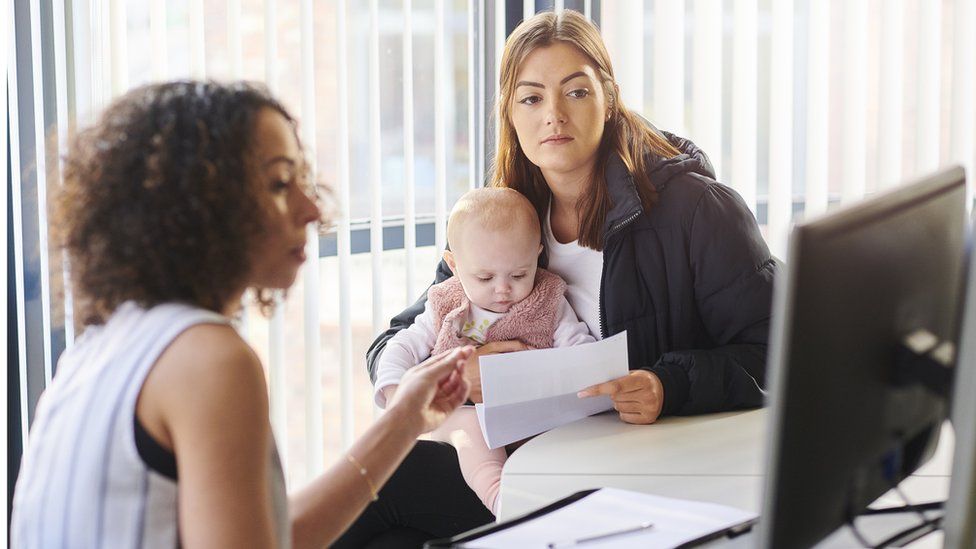 IMAGE SOURCE,GETTY IMAGES
IMAGE SOURCE,GETTY IMAGESOther eligibility criteria, including technical details for those on Universal Credit and other benefits are outlined here for people in England, Wales and Scotland, and here for people in Northern Ireland.
Those on disability benefits will receive £150 in September, which may be on top of the £650 payment, because in many cases they have higher energy use.
Anyone receiving the following benefits will be entitled to the extra £150: Disability Living Allowance, Personal Independence Payment, Attendance Allowance, Scottish Disability Payments, Armed Forces Independence Payment, Constant Attendance Allowance and War Pension Mobility Supplement.
How will the £400 energy discount be paid out?
All UK households will get a grant which will reduce energy bills by £400 from October.
Initially, this was designed to be a £200 reduction paid back in instalments over five year. Now, the discount has been doubled and there is no requirement to repay.
In other words, from October, everyone's energy bill will be reduced by £400.
The discount will be made automatically by your energy supplier. There is no need to apply.
Over the course of six months from October, direct debit and credit customers will have the money credited to their account. Customers with pre-payment meters will have the money applied to their meter or paid via a voucher.
In technical terms. the grant will apply directly for households in England, Scotland, and Wales.
The equivalent funds should be given to Northern Ireland to distribute, although the way to do this has yet to be worked out.
What extra help will pensioners get for winter fuel bills?
Households that receive the Winter Fuel Payment - which is worth £200-£300 and is paid to nearly all homes with at least one person of pension age - will receive an additional £300 in November or December.
That should cover nearly all pensioners across the UK.
Lower-income pensioners, who claim pension credit, will receive the money in addition to the £650 support for those on benefits which is mentioned above.
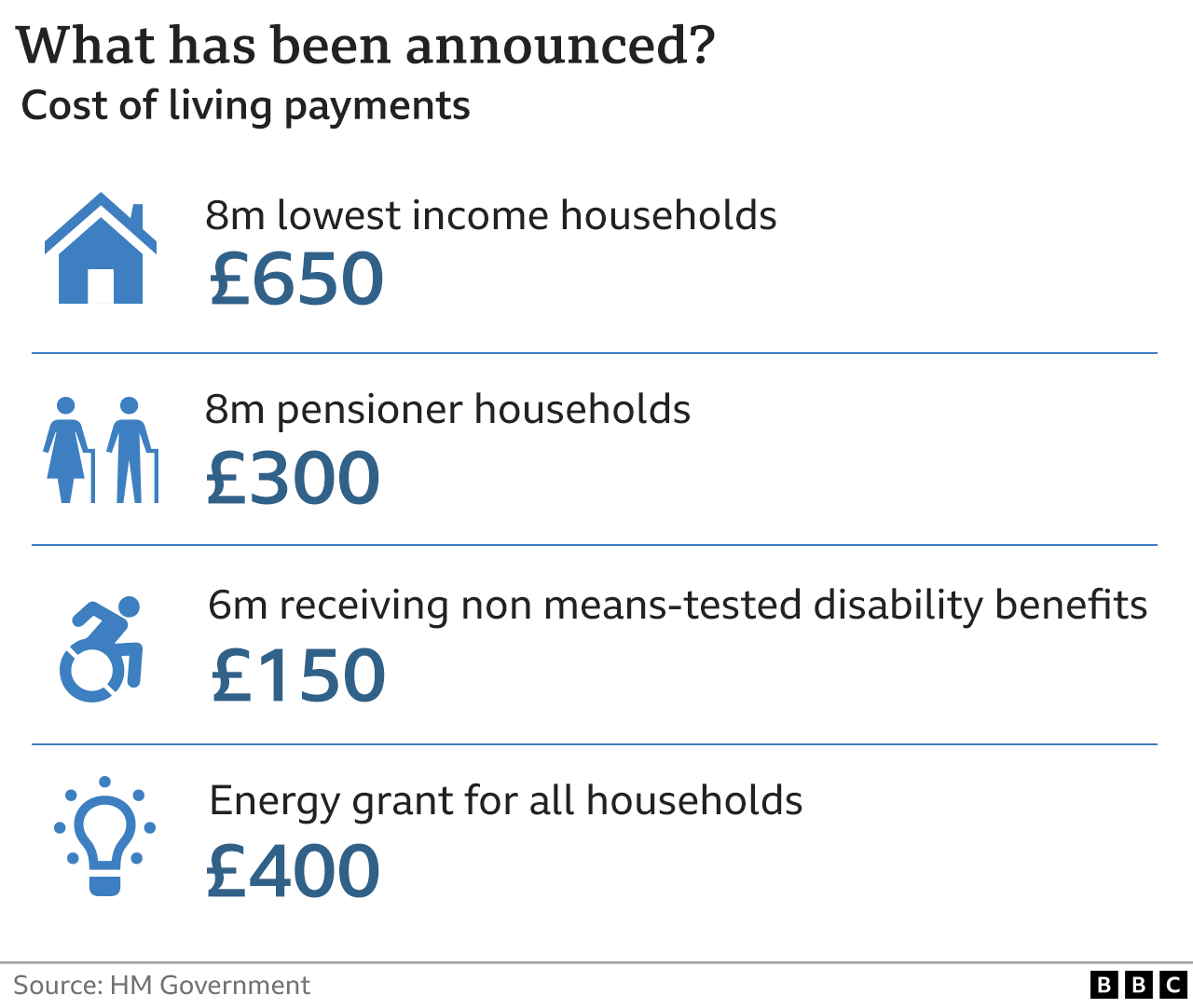
So, there is a cumulative effect on some of the support payments being given.
A small group of pensioners with disabilities will receive a total of £1,500 when all the new payments and discounts they are eligible for are added up.
What payments are already being received?
About 80% of households are already receiving a £150 energy rebate, often through their council tax bill.
The mechanics can differ depending on how you pay your council tax, for example, through direct debit and which part of the country you live in.
Some payments have been made to people with fuel vouchers, for example, through the Household Support Fund distributed by councils.
How will this be funded?
A windfall tax - officially called a temporary levy - will be imposed on energy companies (not your domestic supplier) which should raise about £5bn over the next year.
Companies that get oil and gas out of the ground are getting much more money for it than they were last year, partly because demand has increased as the world emerges from the pandemic and partly because of supply concerns due to Russia's invasion of Ukraine.
Electricity generation companies may also be taxed more in the future.
The tax will cover some, but not all, of the bill for the Treasury, which means the chancellor will have to dip into other funds.
Will the cost of living still go up?
Prices are already rising at a faster rate than at any time in the last 40 years.
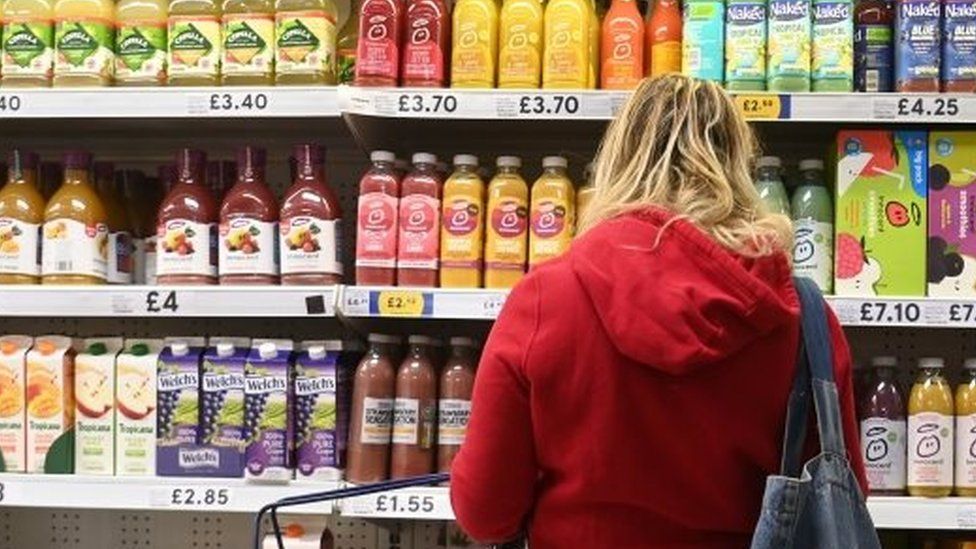 IMAGE SOURCE,EPA
IMAGE SOURCE,EPAOfficial forecasters say that the rate is set to accelerate. Prices will not fall next year and beyond, but the rate of increase is expected to slow.
The big unknown is what will happen to energy bills in the next few years. That depends to a great extent on the war in Ukraine, and its wider impact on energy supplies from Russia and how that changes the wholesale prices paid by energy suppliers.
Consultancy Cornwall Insight says that the typical domestic customer is likely to pay £3,244 a year from October, then £3,363 a year from January. The typical bill at present is about £2,000 a year.
That is a bigger hit to domestic budgets than had been anticipated when the cost-of-living payments were set. For about 19 million of the 23 million households affected in England, Scotland and Wales, the higher cost will be reflected in bigger direct debit demands from their supplier. Prepayment meter users will see a sudden jump from October.
Households in Northern Ireland have already faced higher prices where, unlike England, Scotland and Wales, there is no price cap.
https://www.bbc.co.uk/news/business-61592496?fbclid=IwAR3G-InCe1Aq1ib__OGxRVWlsWvLwv2_0YTPTdvBNq4NGz-YG_XoJ9NCR9o

